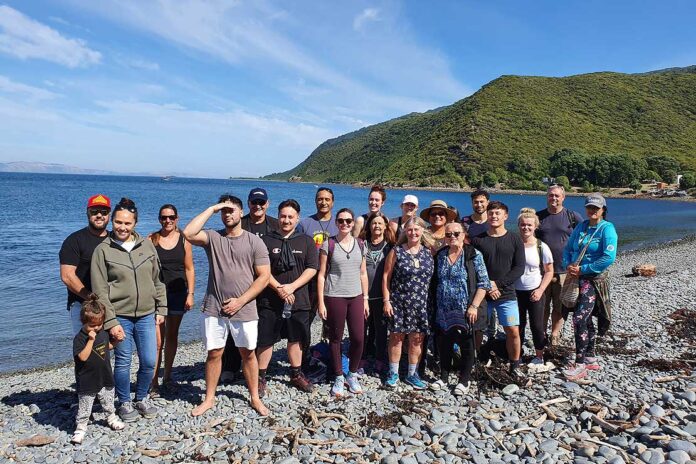Source: Massey University
Te Toi Whakaruruhau o Aotearoa, the new mātauranga Māori Disaster Risk Reduction Centre began development in July 2020.
The collaborative project is led by the Centre’s Director, Associate Professor Christine Kenney, (Te Āti Awa, Ngāti Awa ki Kāpiti, Ngāti Toarangatira, Ngāi Tahu) from the School of Psychology. The multi-disciplinary senior research team includes Associate Professor Jon Procter, (Muaūpoko, Ngāti Apa, Ngāi Tahu) and Dr Acushla Sciascia, (Ngāruahine Rangi, Ngāti Ruanui and Te Āti Awa) from the School of Agriculture and Environment, as well as Senior lecturer Dr Suzanne Phibbs (Ngāi Tahu) from the School of Health Sciences.
Professor Kenney says Te Toi Whakaruruhau o Aotearoa is being developed in part to address the shortfall of a research centre that solely focuses on Māori disaster risk reduction interests and aspirations.
“We see strengthening Māori research leadership and workforce capability in disaster risk reduction as key element in ensuring positive Māori development, and the centre will play a leading role in that. In collaboration with tangata whenua, we will also engage in projects that showcase how mātauranga Māori can innovate disaster risk reduction knowledge and practices throughout Aotearoa New Zealand.
“As partners of EQC, we have a shared vison for a disaster resilient nation. The centre research is conducted by Māori for Māori in culturally acceptable ways and in response to Māori concerns, which align strongly with EQC aspirations.”
She says creating a research whānau that links Māori disaster risk reduction researchers and disaster risk reduction sector agencies with Māori communities together in a culture-based way, has never been done before.
“Our centre is uniquely positioned to facilitate improved Crown Māori relationships within the disaster risk reduction space that will provide benefits for Māori communities and wider New Zealand.”
The centre’s mission is underpinned by a desire to seed inter-disciplinary research that builds Māori disaster risk reduction capabilities and research workforce capacity across Aotearoa, Dr Kenney adds.
“Whakawhanaungatanga has been especially important and within the Te Toi Whakaruruhau whānau, we are operating a tuakana-teina model of support, in which our next generation research leaders (both community and tertiary institution-based) are accessing research mentorship from senior Māori researchers, stipends and opportunities to come together in ways that reinforce their cultural identities, more usually our hui are conducted on marae.
“Going forward we are focusing on building researcher capability in earth, environmental, health and social sciences and emergent researchers’ projects are focused in the area of natural hazards and emergency management, climate change as well as disaster risk reduction, governance, mitigation, preparedness, response, recovery and resilience.”
For more information about Te Toi Whakaruruhau o Aotearoa, visit their website here.



